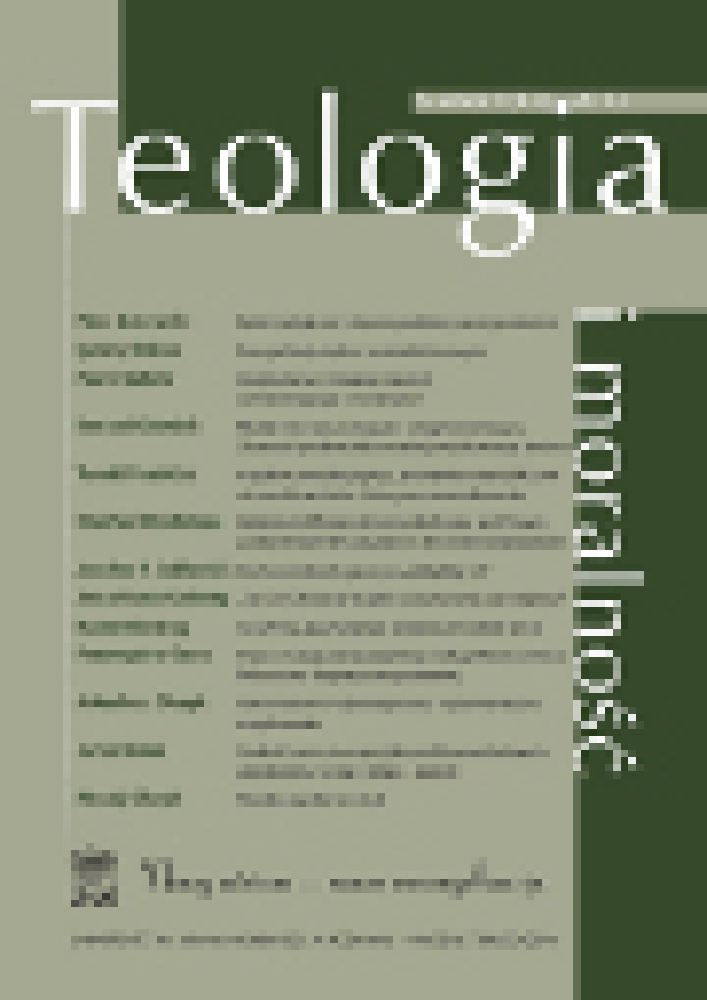Abstract
In 2004 the Pontifical Council for Culture issued a document titled Where is your God? Responding to the Challenge of Unbelief and Religious Indifference Today. The document draws attention to the spiritual drama of our times which consists in whole groups of people quietly abandoning religious practices and losing touch with faith. Such a situation results in a more frequent confrontation of the Church today with religious indifference and practical unbelief rather than atheism which seems to be on the defensive. Therefore, it is the task of the Church to recognize the causes and effects of this phenomenon and to seek appropriate ways of responding. The problem is now especially acute in the new federal states of Germany.
Whereas atheism, which is propagated by means of various organized actions and publications is relatively easy to identify and can be addressed with a whole range of arguments, the phenomenon of religious indifference poses a far more serious and complex problem to theology and one that has not been much analyzed so far. The present article describes the problem of religious indifference from the perspective of the new federal states of Germany. The author characterizes the phenomenon of religious indifference in East Germany in three points and shows in what sense it can be an opportunity and challenge to the missionary activity of the Church. He also highlights the possible strategies of addressing the problem both by Catholic theology and by proclaiming the faith.
References
Berger P. L., An die Stelle von Gewißheiten sind Meinungen getreten. Der Taumel der Befrei- ung und das wachsende Unbehagen darüber, „Frankfurter Allgemeine Zeitung“ vom 7.5.1998, Nr. 105, 14.
Comte-Sponville A., Woran glaubt ein Atheist? Spiritualität ohne Gott, Zürich 2009.
Davie G., Religion in modern Europe. A memory mutates, Oxford 2000.
Froese P., Pfaff S., Explaining a religious anomaly. A historical analysis of secula- rization in Eastern Germany, “Journal for the scientific study of religion” 44 (2005) nr. 4, 397-422.
Halík T., Geduld mit Gott. Die Geschichte von Zachäus heute, Freiburg i. Br. 42011.
Holm N. G., Einführung in die Religionspsychologie, München 1990.
Jaspers K., Philosophie, Bd. 2 („Existenzer- hellung“), Berlin 41973.
Jüngel E., Reden für die Stadt. Zum Verhältnis von Christengemeinde und Bürgergemeinde, München 1978.
Kaplánek M., Entfremdete oder vom christlichen Glauben unberührte Jugend?, in: M. Widl, M. Kaplánek, Jugend – Kirche – Atheismus. Brückenschläge zwischen Ostdeutschland und Tschechien, Ćeske Budejovice – Erfurt 2006, S. 88-98.
Moser T., Gottesvergiftung, Frankfurt 1976.
Pollack D., Säkularisierung – ein moderner Mythos?, Tübingen 2003.
Rahner K., Meditation über das Wort „Gott“, in: Wer ist das eigentlich – Gott?, Hg. H.J. Schultz, München 1969, S. 13-21.
Ratzinger J., Salz der Erde. Christentum und katholische Kirche an der Jahrtausendwende. Ein Gespräch mit Peter Seewald, Stuttgart 41996.
Schaeffler R., Erfahrung als Dialog mit der Wirklichkeit. Eine Untersuchung zur Logik der Erfahrung, Freiburg i. Br. – München 1995.
Tiefensee E., „Religiös unmusikalisch“. Zu einer Metapher Max Webers, in: Zeiten des Übergangs(FS Franz Georg Friemel), Hg. B. Pittner, A. Wollbold, “Erfurter Theologische Studien” 80, Leipzig 2000, S. 119-136.
Weil S., Zeugnis für das Gute. Spiritualität einer Philosophin (Klassiker der Meditation), Zürich-Düsseldorf 1998.
Welte B., Grundfragen der Religion, Leipzig 1981.
Wohlrab-Sahr M., Religionslosigkeit als Thema der Religionssoziologie, „Pastoraltheo- logie“ 90 (2001), S. 152-167.
Zulehner P. M., Denz H., Wie Europa lebt und glaubt. Europäische Wertestudie, Düsseldorf 1994.
License
All rights reserved
